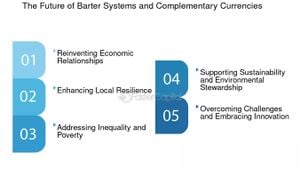A Delhi court has granted an extension of judicial custody for Chief Minister Arvind Kejriwal until August 27, amid serious allegations involving the alleged excise policy scam.
The Central Bureau of Investigation (CBI) has filed corruption charges against Kejriwal, leading to his detention which has been extended through video conference due to procedural requirements.
Special Judge Kaveri Baweja approved this extension, waiting for the court's review of the supplementary chargesheet expected during the upcoming hearing.
Just last week, the Supreme Court denied Kejriwal's plea for interim bail concerning this same case, which embroils him alongside other government officials.
During proceedings, Justices Surya Kant and Ujjal Bhuyan issued a notice to the CBI, effectively demanding clarification as the case progresses.
This significant legal battle began when Kejriwal was previously arrested by the Enforcement Directorate (ED) on charges related to money laundering, connected to the Delhi excise policy of 2021-22.
Despite being granted bail temporarily by the trial court, the High Court stayed this bail, thereby complicaining Kejriwal's legal situation.
It was on August 5 when the Delhi High Court confirmed the legality of Kejriwal's arrest, emphasizing lack of malice and supporting the evidence collected by the CBI prior to his capture.
While the state has closely monitored Kejriwal's movement, the High Court remarked on the existing evidence and noted potential risks associated with his influence over witnesses involved.
Notably, Kejriwal, quite influential within political circles, is celebrated as the convenor of the Aam Aadmi Party and has received various accolades, including the Magsaysay Award.
His arrest continues to resonate within political discussions, raising eyebrows about the apparent political motivations behind the case.
On August 27, as court proceedings will address the supplementary chargesheet, Kejriwal's hopes for bail hang delicately, backed by strategic legal arguments from his team.
Kejriwal’s legal representation, led by senior advocate Abhishek Manu Singhvi, has taken aim at the stringent bail conditions and highlights his capacity as more than just a defendant.
The situation holds vast political ramifications, not only for Kejriwal and his AAP party, but also for the general atmosphere leading up to forthcoming elections.
Despite these developments, Kejriwal’s supporters steadfastly maintain their defense, insisting upon the integrity of their leader and undermining any rumored corruption allegations.
This extension signifies more than judicial proceedings; it reflects the turbulent nature of Indian politics interwoven with judicial oversight.
The forthcoming weeks will undeniably be pivotal for Kejriwal as he navigates these trials, alongside the scrutiny of the public and governmental entities.



